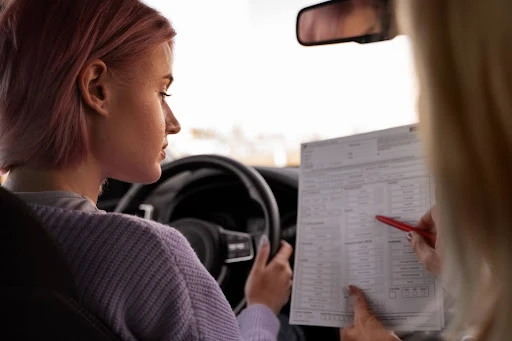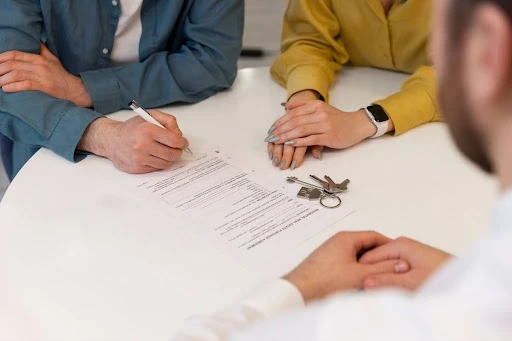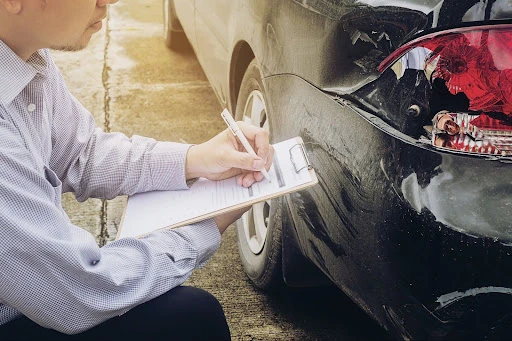Indianapolis Rear-End Accident Attorney
Helping people is our priority



Since 1993

Rear End Collision Cases in Indianapolis
Were you rear ended by a reckless driver in Indianapolis? You should file a claim against them for compensation, but don’t rush into it. If your claim is weak or does not calculate your damages correctly, then you could be risking all the money owed to you.
To be sure that your case has a fair chance of succeeding, team up with the Indianapolis rear-end accident attorneys of Christie Farrell Lee & Bell. Our personal injury lawyers have more than 40 years of practice experience to put to good use when working on your case. No matter what the opposition throws at you, we will be ready to counter it, just as we have done for countless clients in the past.
Speak with a personal injury lawyer today. Call: 317-488-5500
Causes of Rear-End Accidents
People often assume that the driver who is rear-ended cannot be held liable for the car accident. Surprisingly, this is not always true. Liability can be split in rear-end accidents, which is why it is so important to prove that you did nothing wrong. You can rely on our legal team to investigate your crash and find evidence that the other driver was entirely at fault.
Rear-end accidents are often caused by drivers who:
- Tailgate: When a driver follows another vehicle too closely, they are tailgating. If you have to hit the brakes suddenly or just come to a normal stop at an intersection, then the tailgating driver can crash right into you without any time to brace for impact.
- Drive while intoxicated: Drunk drivers are entirely unpredictable. They might weave through traffic or suddenly slam on the accelerator even though they are approaching a red light. In many rear-end accident cases, it is discovered that the liable driver was drunk.
- Text and drive: Using a smartphone behind the wheel can be just as dangerous as drunk driving. A motorist who checks a text message for 5 seconds while moving at highway speeds will travel the length of a football field while effectively blind to traffic, which can result in a rear-end crash.
- Speed: Another notorious cause of rear-end collisions is speeding, the most common form of reckless driving. Drivers who break the speed limit need more space to come to a complete stop, which might not be possible if they don’t notice that traffic is stopped ahead of them.
Complete a Free Case Evaluation form now
Injuries Caused by Rear End Accidents
Rear-end accidents can cause life-changing injuries. Insurance companies like to argue otherwise, but medical records can prove it. Let us know if you were severely injured in a rear-end accident, so our experienced Indiana car injury lawyers at Christie Farrell Lee & Bell can start calculating how much compensation you might be owed by the driver who hit you.
People who are hurt in rear-end accidents often suffer:
- Whiplash: One of the most common types of injuries that people suffer in rear-end collisions is whiplash. This is a soft tissue injury affecting the nerves, ligaments, muscles, and tendons of the neck. It can start as a dull ache but soon worsen to debilitating pain.
- Back injury: When a car slams into the back bumper of another, the force of the impact will travel through the vehicle and slam into the driver and passengers. Oftentimes, due to the design of car seats, the worst damage will happen to the lower back.
- Head injury: If a rear-end collision happens at a high speed, then people in the front car can be violently rocked back and forth. This sudden, uncontrolled motion can cause them to hit their heads on the dashboard and steering wheel, causing a serious head injury.
- Broken bones: Motorists who brace for the imminent impact of a rear-end collision can actually brace incorrectly and put themselves at a higher risk of suffering multiple broken bones. It is sometimes recommended that “going loose” is the safer option for this reason.
Click to contact us today
Immediate Steps You Should Take After a Rear End Collision
- Check for Injuries
- Move to Safety
- Call the Police
- Exchange Information
- Document the Accident
- Look for Witnesses
- Seek Medical Attention if Needed
- Notify Your Insurance Company (provide them with basic facts, but be careful to not make any statements that can affect your claim)
- Consult with an experienced car wreck law firm
- Be Mindful of Deadlines (two years to file a claim in Indiana)
Contact Our Firm Today
If you need to get your rear-end accident claim rolling, we can help. Our Indianapolis rear end accident attorneys at Christie Farrell Lee & Bell are always ready to hear from new and returning clients. Whether your crash happened on the highway, suburban street, parking lot, or elsewhere, you can rely on us to investigate it, build your claim, and fight for maximized compensation.
Indianapolis Office
951 N Delaware St Indianapolis, IN 46202
Phone: 317-593-9202

Get a FREE Case Review
Schedule Your Free Consultation


















